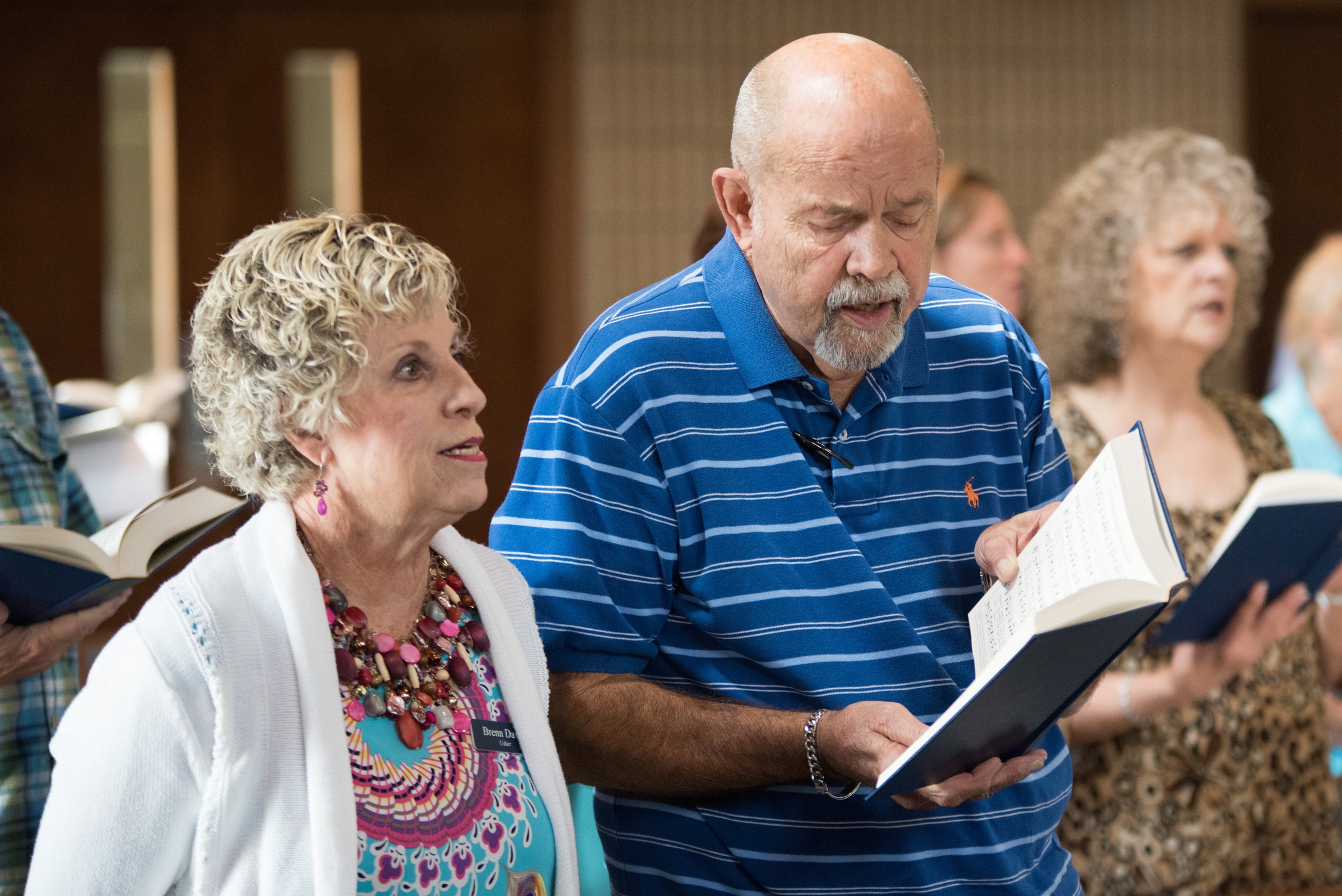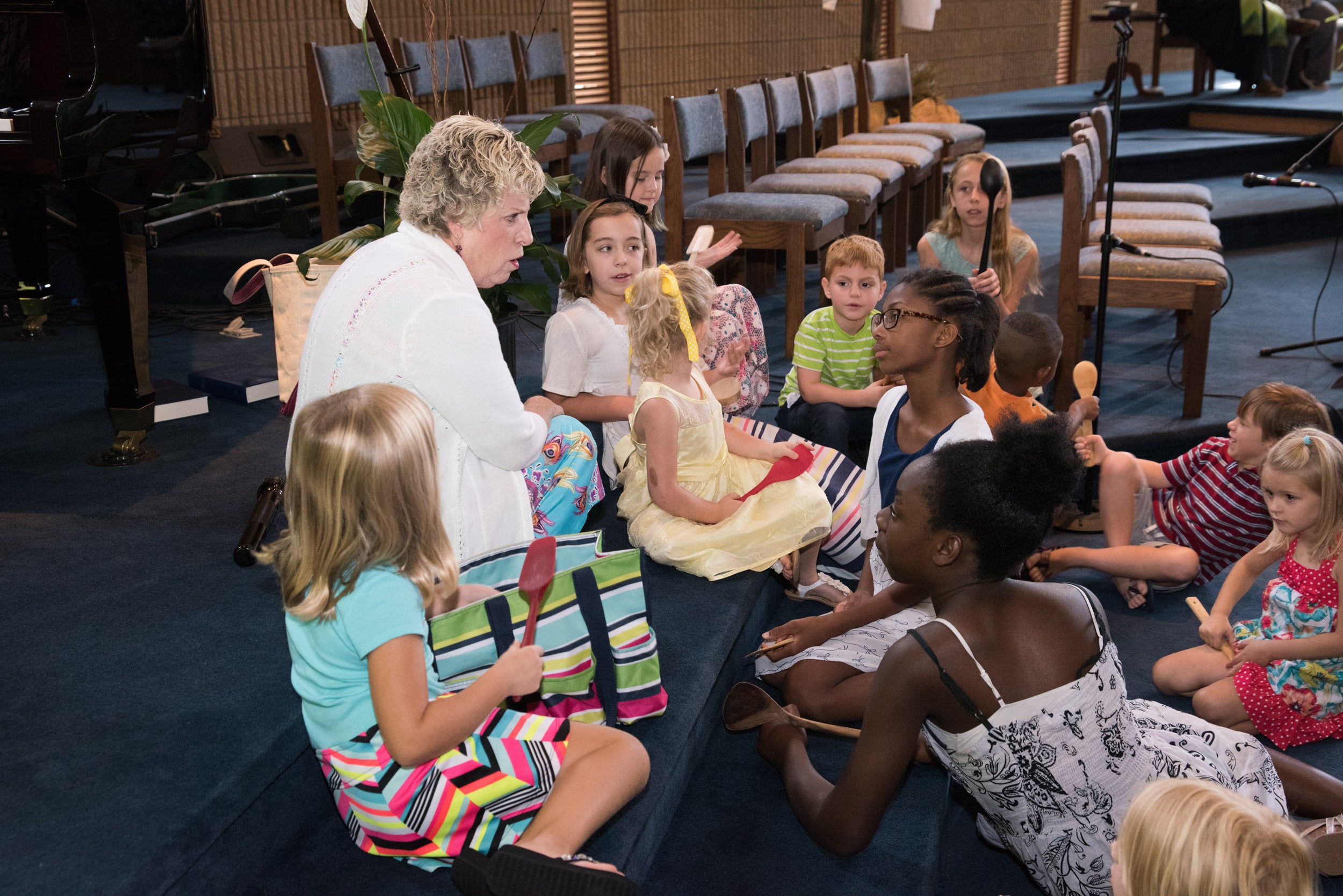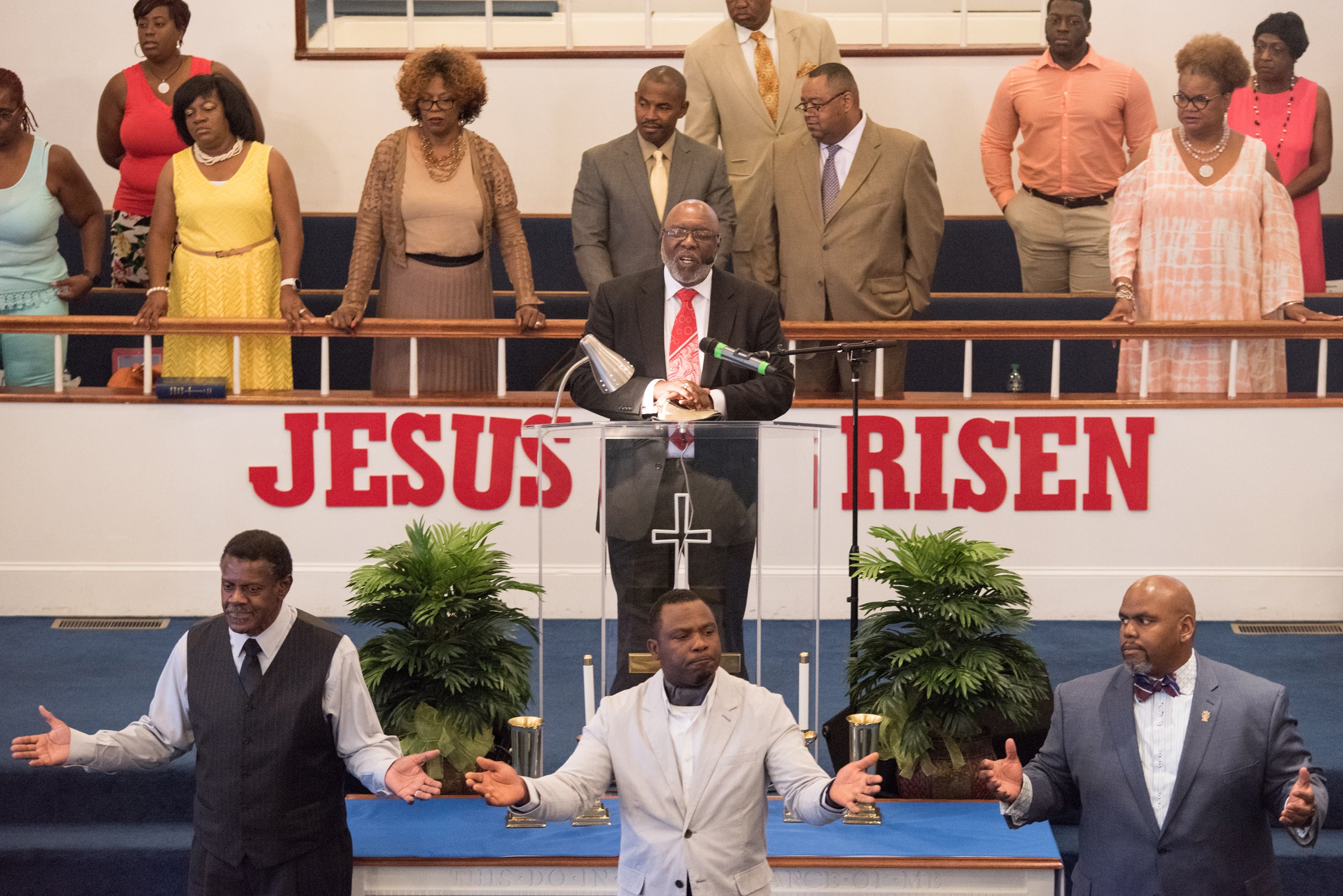Segregated Sundays: Area pastors discuss diversity in church
Published 11:57 am Wednesday, November 8, 2017
In 1960, Martin Luther King Jr. stated that 11 o’clock on Sunday morning is “one of the most segregated hours, if not the most segregated hour in Christian America.” That statement remains true today, as not much has changed since then.
Although many pastors throughout Shelby County agree that racial and ethnic diversity in the church is something that all churches should strive for, it’s a feat that has proven to be difficult to accomplish or maintain.
The idea of racial diversity is something most pastors believe in according to a survey from Nashville-based LifeWay Research. The survey found that more than eight in 10 senior pastors said every church should strive for racial diversity.
Kenneth Bruce, senior pastor of Westwood Baptist Church in Alabaster, said a diverse church is a “foretaste of heaven.”
Crosscreek Baptist Church Senior Pastor Brandon Hudson added that it would behoove society to “understand and explore diversity” while here on Earth since the Bible states that the kingdom of God is one of diversity.
However, area clergy said obstacles such as tradition and comfort, societal racial tensions, racial bias or prejudice, stereotypes and even some practical reasons are just some of the factors that contribute to the racial divide present in churches local and nationwide.
Are these obstacles too much to overcome? Is the idea of truly integrated worship services just a dream that may never be fully realized?
Evaluating the problem
“Spiritual traditions can be the hardest ones to break,” said Jerry McClain, co-pastor of Kingdom Christian Center in Pelham.
According to McClain, traditions and ideologies are the most difficult to break because they’re so connected to us.
“Some people are not willing to submit their spirit to a person who might infringe on certain beliefs and traditions they have,” McClain said. “They want to hear from a person who looks like them and who is going to tell them things they are accustomed to hearing. And that extends beyond black and white. Some people won’t submit themselves to a female minister. But in order to make progress, people have to set aside the norms of their upbringing.”
Akeam Simmons, senior pastor of Liberty Baptist Church, said it’s human nature for people to feel most comfortable around someone they’re familiar with and people who look like them and who’s life experiences they can relate to.
“Nonetheless, I still say that it’s something that we’ve got to get past because heaven is not divided as such,” Simmons said.
McClain, who is African American and was raised in a black southern Baptist church, said he was enlightened by the church he and his wife and co-pastor of Kingdom Christian Center, Charla McClain, attended while living in Seattle.
“We came here from a very diverse church in Seattle,” McClain said. “That’s the church where Charla and I were ordained. When we would have international Sunday at that church there would be 70-80 countries represented.”
When the McClains moved to Shelby County, their goal was to start a diverse church like the one they attended in Seattle.
“At one point, we were thriving in the area of diversity,” Jerry McClain said. “When we created our staff it was diverse – our staff looked like what we wanted our church to look like, but through the years of attrition that changed.”
Charla McClain said some people look at pastors from the outside instead of the way God sees them.
“God doesn’t see them as colorful – God sees them as a man or woman of God,” Charla McClain said. “Part of the problem is that people are looking with their physical eyes instead of with their spiritual eyes.”
Simmons said the racial tensions present in society are spilling over into the church. Bruce agreed, saying that it’s unfortunate that some people still align black and white as negative instead of beautiful.
“The racial divide and the racial tension is pushing us further and further apart,” Simmons said. “It’s pushing us away from what we were originally designed to be – to the point where we are not comfortable going into a church with a congregation that differs from our ethnic group.”
Hudson said he’s seen firsthand the racial prejudices and institutionalized racism still present in society. Before he moved to Alabama to take on the position of senior pastor at Crosscreek, he and his wife lived in North Carolina. While there, they raised biracial girls for about two years.
While living in his native state of Texas, Hudson’s wife worked at a Methodist children’s home where she met and became fond of two girls whose mother had an addiction issue.
“We told them that we would always do whatever we could for them, and then when we moved to North Carolina and their situation got worse,” Hudson said. “We prayed about it and thought about it, and what we could do was invite them to come live with us.”
Both girls lived with them for some time, but the youngest stayed the longest, until she graduated from high school and went to college.
“In the midst of that my eyes were really opened, as her guardian, to systemic racism,” Hudson said. “For example I would go into the dentist office before her and I would be treated one way, and she would come in after me and they wouldn’t realize that we were together at first and she’d be treated very differently.
“And I’m sure that the people who worked there would tell you that they’re not racist but there’s assumptions about people who are on Medicaid – there are assumptions about all kinds of stuff that I was unaware of. That was a really eye opening experience. So if everybody in life doesn’t take in someone who is different from them to live with them, where do they get to experience how others see life? I would say that church should be one of those places.”
The stereotypes and assumptions people make about each other every day is another facet of the divide, said Charla McClain. She said stereotypes about what the experience is like at a white versus a black church also keep churchgoers separated.
“I can only speak from my experience as a black person, but people think that black pastors are all the same,” she said. “They don’t have a real view of what diversity is. For example, we have an hour and a half service from 10:30 to noon every Sunday. And some people think that a church with pastors that look like us, they’ll be in church all day or they have to wear a certain thing.
“Pastor Jerry wears jeans, I wear jeans. I think people see a church with pastors that look like us and they think they have to wear hats, gloves and three-piece suits. That’s not who we are. And I’m not saying that’s wrong, what I’m saying is that all churches tend to be put in a certain category instead of following the anointing of the pastor. The stereotypes hinder us instead of helping us. They’re not even going to come see because they’re familiar with what they’ve seen on television or what they’ve heard. Or perhaps they visited one time a church like that.”
Aside from racial, stereotypical and traditional reasons, Bruce said theological, worship style and practical reasons are also factors. Practically, Bruce said people will typically attend the church that is closest to where they live, and often times black people live in predominantly black neighborhoods and whites in mostly white neighborhoods.
And regardless of race or ethnicity, Bruce said people will seek out a local church that will have a worship experience in which they are more comfortable or familiar and will submit to a local church that most aligns with their theological convictions, whether it be based upon baptism or the Lord’s Supper.
“The style of worship is theological,” Bruce said. “An example of that is some churches give higher priority to preaching where other churches would give lower priority to preaching and more the singing. It might not have anything to do with race. A person might say they’re going to lock arms with a church because they preach the word, they’re passionate, they’re clear and there’s compelling and convictional leadership – those are theological convictions.”
How to overcome
With the obstacles clearly laid out, how can society overcome these divisive issues? Bruce, Hudson and Simmons said it can be done through being intentional and sincere.
Hudson said congregations have to be honest and open by not pretending that differences don’t exist, but not making the differences the thing that’s the elephant in the room. Bruce said it must be modeled and taught.
“We model it through intentionally engaging different ethnic groups and giving diverse ethnicities the opportunity to be in leadership within the church,” Bruce said. “Westwood seeks to fulfill this through sharing the gospel with all of our neighbors. We’re also intentional with local and international adoption and foster care – caring for all people of various pigmentations.
“It also has to be intentionally taught from the pulpit by communicating God’s design that he made all people as image bearers,” Bruce continued. “All people are loved by him, and all people can be redeemed through his son Jesus. I seek to apply the scriptures to various social aspects such as racial reconciliation, political engagement and how we can love our neighbor.”
Simmons added that pastors must advocate for diversity in their congregations.
“At Liberty, we try to work some of the neighborhood churches and try to bring in some diversity,” he said. “As a matter of fact, in July we had a Caucasian preacher bring the morning message for us because we’re trying to reach out and not wait until we are invited. Instead, let’s set the example. It’s time to go outside of our comfort zone as a church. We have to go forward and support their programs and not wait to be invited. Go and not invade, but go to just be a part of it. And when we have programs we have to include not just Caucasians, but everyone – Hispanics and other ethnicities too.”
Bruce added that churches also need to be willing to adapt how they function and worship for the sake of cultural engagement without neglecting theological and biblical convictions.
“I think there’s a way to do both, but there are some things that the church cannot compromise on,” he said. “For example, we as a church are not going to compromise on the inerrancy of scripture. It’s God’s word, it is without error and it’s perfect. However, when it comes to how we apply it to our cultural context, we’re going to seek to be very openhanded on how we can be both biblically faithful and yet culturally engaging.”
Looking to the future
“In the future I don’t think it will be as bad as it is now, but however I do believe that it will perhaps always be,” Simmons said. “And I say it won’t be as bad because younger generations, Millennials, they are more apt to worship outside of racial parameters but I still think it is something that will always be because it’s so ingrained. Won’t completely get away from it because human nature pushes us to want to be around those who remind us of ourselves.”
But Charla McClain said that if some parents continue to dominate and influence their children and not let them branch out and experience diverse things or see other cultures, then things will likely remain the same.
Bruce said the church can play a vital role in equipping families to engage the community and the culture by modeling and teaching gospel-centered racial reconciliation. Church is the place where people can learn how to embrace diversity. Bruce and Simmons said the church should be leading the way when it comes to racial reconciliation.
“We’ve got to do all we can because I think the world is looking at us and if we can’t get it together how can we expect others to,” Simmons said. “We’ve got to get outside of the sphere and try to reflect heaven. The Bible says in heaven there’s going to be all nations, all kingdoms and all tongues. We won’t get to heaven and say, ‘Hey Gabriel, where’s the black section or where are the Baptists at?’ All of that stuff is manmade.
“The church has a magnanimous job to try to pull down these walls and put our arms around each other and try to get past it,” Simmons added. “What we can do is try to move past it and have enough God in us to say that we want to be like Jesus. That’s where we are and that’s what we’ve got to deal with.”













